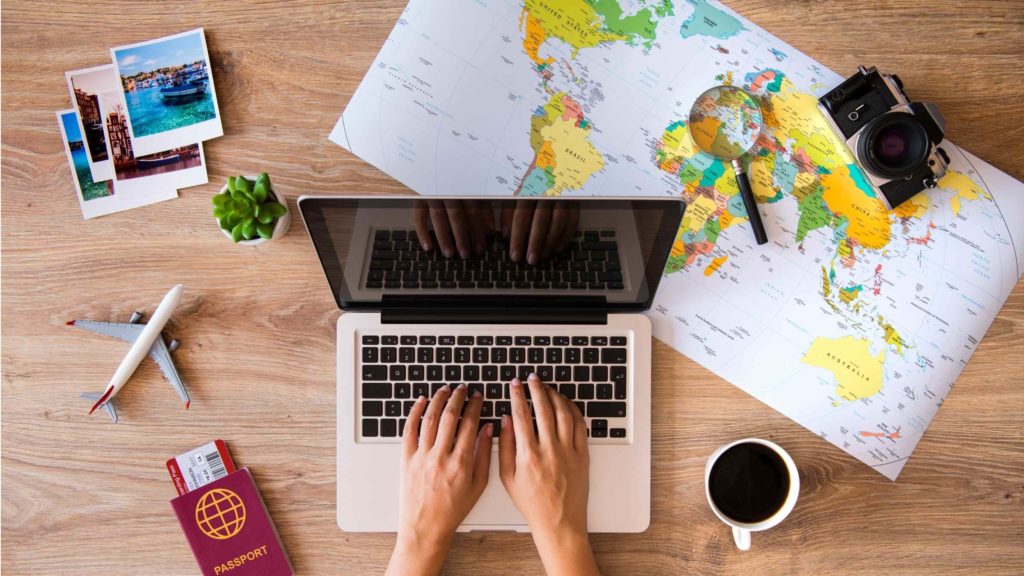Everyone dreams of escaping to a beautiful destination—whether it’s a beach, a mountain retreat, or a charming cultural city. But vacations can often seem like luxury expenses that break the bank. The good news? You can plan the perfect vacation without burning a hole in your pocket. With a bit of smart planning, creativity, and flexibility, a memorable getaway on a budget is entirely possible.
In this article, we’ll walk you through practical tips and strategies to help you plan the perfect budget-friendly vacation, from choosing the right destination to saving money while you travel.
1. Start With a Realistic Budget
The first step to planning a budget vacation is to know your limits. Sit down and determine exactly how much you’re willing (and able) to spend. Your budget should include:
-
Transportation (flights, buses, trains, taxis)
-
Accommodation
-
Meals and snacks
-
Activities and entrance fees
-
Souvenirs
-
Emergency fund
Having a clear number in mind helps narrow down your options and avoid overspending. Many apps and websites allow you to track your travel expenses in real-time—super useful for staying within budget.
2. Choose Budget-Friendly Destinations
Some places are naturally more affordable than others. If you’re traveling from India, Southeast Asia (like Vietnam, Thailand, or Indonesia), Eastern Europe (Georgia, Romania, Hungary), and parts of Central America offer incredible value for money.
Budget-Friendly Destinations to Consider:
-
Thailand – Affordable food, stays, and activities
-
Nepal – Great for adventure lovers and spiritual seekers
-
Turkey – Culture, history, and coastal beauty on a budget
-
Vietnam – Street food paradise and stunning scenery
-
Sri Lanka – Beaches, wildlife, and culture at great prices
Even within India, destinations like Himachal Pradesh, Kerala, and Goa can be incredibly budget-friendly when planned wisely.
3. Travel During the Off-Season
One of the biggest travel hacks for saving money is to avoid peak travel seasons. Prices for flights, hotels, and even tours tend to skyrocket during holidays or festival periods.
For example:
-
Travel to Europe in spring or fall instead of summer.
-
Visit hill stations like Manali or Darjeeling before or after peak summer crowds.
-
Beach destinations like Goa or Bali are cheaper during the monsoon/off-season.
Bonus? Fewer crowds and better availability!
4. Use Flight Comparison Tools
Airfare is often the biggest chunk of a vacation budget, so finding cheap flights is crucial.
Tips to Save on Flights:
-
Use tools like Google Flights, Skyscanner, or Momondo to compare fares.
-
Be flexible with your travel dates and airports.
-
Book at least 6–8 weeks in advance for the best prices.
-
Set price alerts and grab deals when you see them.
Also, consider budget airlines or look for package deals that include flights + accommodation.
5. Save Big on Accommodation
Where you stay can make or break your budget. Luckily, there are plenty of affordable options beyond fancy hotels.
Budget Accommodation Ideas:
-
Hostels – Clean, cheap, and a great way to meet travelers.
-
Guesthouses & Homestays – More personal and often include meals.
-
Airbnb or Vacation Rentals – Especially cost-effective for families or groups.
-
Budget Hotel Chains – Look for reliable chains with decent reviews.
Pro tip: Try staying outside the city center where prices are lower, but ensure you have access to public transport.
6. Plan Your Meals Smartly
Eating out every meal can add up quickly. Mix up your dining habits to save while still enjoying local cuisine.
Money-Saving Food Tips:
-
Eat like a local—street food and local joints are usually cheaper and more authentic.
-
Book accommodations with a free breakfast.
-
Visit local markets and cook some of your own meals if possible.
-
Pack snacks and water to avoid impulse purchases.
Apps like Zomato, Tripadvisor, or Google Maps can help you find good cheap eats nearby.
7. Prioritize Free & Low-Cost Activities
Some of the best experiences in travel don’t cost a thing!
Free & Budget-Friendly Experiences:
-
Walking tours (many cities offer free guided tours)
-
Hiking, swimming, or biking in nature
-
Visiting temples, churches, or public gardens
-
Local festivals and street performances
-
Museums with free entry days or discounts
Plan ahead and research attractions that offer free access on specific days of the week.
8. Use Public Transport
Transportation within your destination can also add up—especially if you rely on taxis or ride-sharing apps.
Opt for public transport like buses, trams, and metro trains. They’re not only cheaper but also offer a more immersive experience in the local culture.
Also, consider renting a bike or scooter, especially in smaller towns or islands where it’s safe and economical.
9. Travel Light
Avoid hefty baggage fees by packing smart. Many budget airlines charge extra for checked luggage, so stick to a carry-on if you can.
Bring versatile clothing items, and check your destination’s weather forecast before packing. Also, don’t forget essentials like a power adapter, reusable water bottle, and basic medicine to avoid last-minute expenses.
10. Book in Advance Where Possible
While spontaneity is fun, booking transportation, accommodations, and key activities in advance often leads to better deals. Look for early bird discounts, package offers, or bundle deals.
Also, research if tourist passes (like city cards or attraction bundles) can save you money based on your itinerary.
Bonus Tips for Budget Travelers:
-
Travel Insurance: Don’t skip it. Look for affordable plans—especially for international trips.
-
Local SIM or eSIM: Avoid roaming charges by getting a local data plan.
-
Currency Exchange: Avoid airport counters and compare exchange rates at local banks or ATMs.
-
Group Travel: Traveling with friends or family helps split costs for transport, rooms, and meals.
Traveling doesn’t have to be expensive to be unforgettable. With thoughtful planning, open-mindedness, and a bit of flexibility, you can experience the wonders of the world without maxing out your savings.
The perfect vacation is one where you come home richer in memories—not poorer in money. So pick a spot on the map, crunch those numbers, and start planning your budget-friendly escape today!


0 Comment